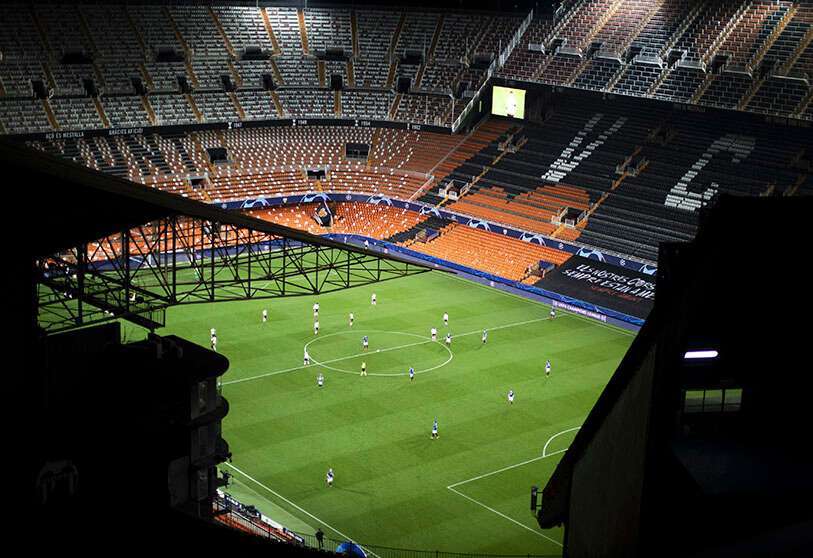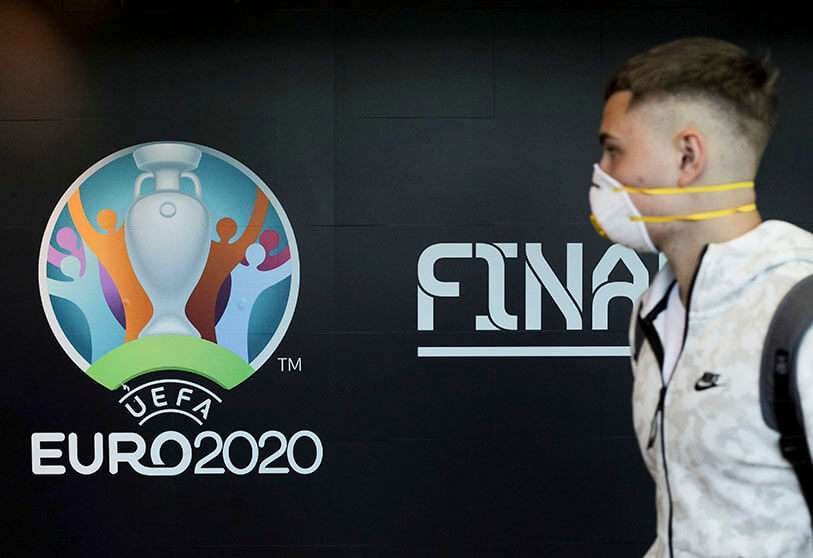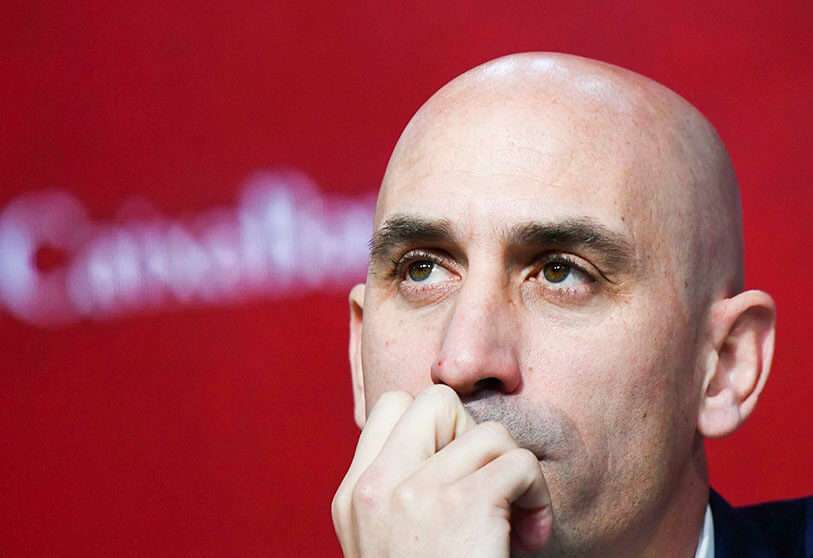Sports industry fears severe economic losses from coronavirus pandemic

The global health crisis triggered by the spread of the COVID-19 disease, which has left hundreds of thousands of people dead and millions affected, has hit the world of sport hard with an almost worldwide cessation of sporting events (with rare exceptions such as Belarus, Tajikistan, Taiwan, Nicaragua and Burundi); this is expected to pose a major problem for the sector's finances. This is something that generates fear and uncertainty about the future of the sports area at an international level.
The greatest impact will surely be related to the issue of broadcasting rights for competitions and sports revenues, a thorny and difficult issue that is already generating a deep debate. The current standstill of practically all the most important sporting events throughout the world has led to doubts about what to do with television rights now and in the future.
Networks all over the world have invested a lot of money to obtain ownership of the rights for broadcasting all kinds of sporting events and in many cases the seasons and calendars for various sports, such as football or basketball to give just a few examples, have been postponed until further notice in the hope that they can be completed if it is possible to do so in the future, perhaps as early as this summer. There is strong pressure to finish the competitions in order to satisfy television interests and not to have to account later for not complying with rights for which a substantial sum has been paid. The fact is that there is currently an interruption in the income of football clubs and sporting bodies in general and of the institutions responsible for organising competitions, which obviously affects budgets and cash flow.
There are also fears about what may happen in the future with the new scale of values for sports broadcasting rights.
Forbes magazine estimates that major sports in the United States will lose at least $5 billion from the coronavirus, a figure that could rise to $10 billion if activity does not resume in July.
Most of these losses come from television rights, but major sports competitions around the world could claim money in court and cushion the blow to some extent. In addition, insurance may have been taken out in certain cases to guarantee the figures received. It is the national competitions and leagues, which have their own contracts and rights, that could suffer the most. Because of this, football leagues throughout Europe are still taking time and waiting to make more precise decisions about postponements and when to return to action; and that is also why it took so long to decree the postponement of the Tokyo Olympics until 2021, for example.
The ticket offices, an important source of income too, are obviously another concern. Many organisations have, since the beginning of the season, budgeted for profits related to the sale of tickets for matches or sports competitions, which have now suddenly disappeared. It is expected that, in many cases, even if there is a return to the dispute of sports events of all kinds, the return will have to take place behind closed doors, without an audience, in order to continue complying with the measures of social distancing proposed by institutions such as the World Health Organization (WHO) to stop the spread of COVID-19. This would mean the disappearance of the profits expected from this scheduled ticket sale.

Tourism will also be greatly affected by the paralysis of sport. The tourism sector is also linked to sports events that attract thousands of people in different parts of the world.
The Olympic Games are a great example of this. The greatest sports competition worldwide generates great expectations and in the case of the recently postponed Tokyo Olympics, around half a million visitors were expected, mainly from the United States and Europe, on Japanese soil for the Olympic conclave. The same is true of other important commitments, such as in elite football and tournaments such as the Champions League or the European Nations Cup, which was moved from this summer to the following summer in 2021. These are events on which part of the tourism associated with areas such as ticket sales or visits to stadiums or sports museums depends.
It cannot be denied that sport will be greatly affected by the coronavirus crisis and the authorities are already preparing for this with summits at the highest level to assess and agree on roadmaps to mitigate as much as possible the blow received by the coronavirus pandemic.
The estimated losses at this time could be in the billions. The suspensions are likely to cause devastating economic losses for all sports. Insurance policies could mitigate the effect, but the debacle could still be huge.
According to sources such as the Tokyo Olympic Games organization itself or consulting firms such as KPMG or Sport Value, the figures involved are impressive.
Regarding the Olympic Games, the most important sports event in the world, which are held every four years, the final investment made for their celebration amounts to about 25,500 million euros (about 5,000 million assumed by the city of Tokyo, another 5,000 by the Japanese Olympic Committee and about 1,265 by the Japanese government). 4.5 billion from television rights, 3 billion from private sponsorship by companies such as Toyota, Bridgestone and Panasonic, and 900 million from entry fees, marketing and other aspects such as expected revenue from foreign tourists, an estimated figure of over 600,000. This is now being challenged by the situation that may arise in the summer of 2021, the period in which the Olympic Games are to be held.

As far as the beautiful game, football, is concerned, the numbers are to be taken into account as well. The big football event that was scheduled for 2020, the European Championship, was moved to next year and there is speculation about the money that moves this tournament, which has a budget of 2,200 million euros and gives 371 million in prizes to the 24 qualified teams, 200 million for compensation to the clubs that give their players to play the tournament and 775 million to the federations of each nation.
On the other hand, the European football competitions stopped so far also involve sums of money to be distributed among the participating teams. The Champions League, Europe's top club competition, has a budget of 1.95 billion euros for participating teams, while the Europa League has a budget of 510 million euros.

The major European leagues are also expecting substantial losses, since of the total income set and put at stake by adding the English Premier League, the Spanish La Liga, the German Bundesliga, the Italian Seria A and the French Ligue 1, which accounts for some 4 billion euros, 60% comes from television broadcasting rights, 25% from brand sponsorship income and 15% from other items. Losses due to the cessation of activity can reach 1.2 billion euros in the Premier League, 900 million in the Spanish La Liga, 740 million in the Bundesliga, more than 600 million in the Italian Serie A and almost 400 million in the French domestic competition.
In this scenario, in the case of Spain, there has been an attempt to iron out the differences between two antagonistic leaders who have until now been at loggerheads, such as Javier Tebas, president of LaLiga, and Luis Rubiales, president of the Royal Spanish Football Federation (RFEF), thanks to the mediation of the Higher Sports Council (CSD) and its president Irene Lozano.

In a three-way meeting last week, the parties involved agreed on a basic agreement to return to football when the necessary conditions are in place and the Ministry of Health has given the go-ahead to protect the health of those involved.
The principle of agreement, of which no details were given, will continue to be developed "in the short, mid and long term to design the future of Spanish football after the pandemic", as stated in a joint official statement, with the intention of establishing a procedure to be followed for the revival of Spanish football, which has been stopped since 13 March due to the health crisis unleashed by the spread of the disease COVID-19; all with the firm intention of restarting the competition at national level to limit the negative effects on it.
The official note also pointed out that Irene Lozano, Luis Rubiales and Javier Tebas "also committed to devote part of the resources generated by the audiovisual rights of football to a rescue of the rest of the federated sports, Olympic and Paralympic. The presidents of the RFEF and LaLiga, the highest governing bodies of Spanish football, also "signed a commitment to create a contingency fund of 10 million euros, to which they will invite other entities such as the Football Association (AFE) to participate, in order to help the most vulnerable athletes".

Other sports put into play sums that can be committed as well. As is the case of motor racing and motorcycling, with Formula 1, with an average of 105 million euros of impact in each city that hosts a Grand Prix, or the MotoGP championship, with an average of 57 million euros per city and Grand Prix. In addition, there are competitions in the United States in basketball, with an NBA (the most important basketball competition in the world) that could lose up to 916 million euros at the box office, or baseball, with an MLB that could lose up to 2,000 million euros due to the interruption of ticket sales.









